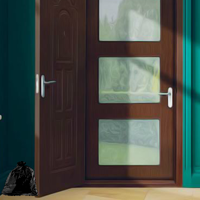
Game Themes and Narratives
For motivations behind this conversation, the expressions “subjects” and “stories” will be utilized specifically. For the mix of subject or potentially story, there are a few levels: Break rooms can be an assortment of riddles and undertakings without a topic or an account. Break rooms can have a topic, for example, “Getaway from the Haunted Basement” or “Profound Space Desertion”, where the embellishments, soundtrack, and props in the room coordinate with the subject, however, there is no overall story. This would be much the same as being on a film set without content; players can decide to include their own story, however, there is not an account given. various virtual escape games consist of riddles. The riddles could stand freely outside of the room and don’t depend upon the subject. Departure rooms can have an account and the players are put into a job into the account through some sort of a pre-game video or story introduced by the game expert. The objective may integrate with this account, yet the riddles done all through the room don’t move the story can a lot stand separated from the account. At long last, get away from rooms can have an account and specialty the riddles with the end goal that the riddles are important for the narrating and move the story along. The riddles can’t be isolated from the account, as they are essential for the story.

Some other techniques are also followed by people
Another technique, which is utilized by Magi Quest (different areas), Wizard Quest in the Wisconsin Dells and Sorcerers of the Magic Kingdom at Disneyworld’s Magic Kingdom, is to make a getaway stay with various potential riddles, and each group gets an alternate haphazardly created a way that utilizes a subset of riddles. Hence, while a group may get a couple of rehash puzzles on another play, a large portion of the experience will be new. The technique utilized by 5Wits to keep their undertakings repayable is to have puzzle-based errands that gatherings should cooperate to finish. As it is a family-engaged fascination, the plan center isn’t on making mind-twisting or dull riddles, but instead to make fun riddles that require an answer, yet require the gathering to cooperate to do the arrangement.
One illustration of this was from Entries, a shut themed fascination from Seattle
Where one player needed to wear a cap with a camera on it and enter a space with fundamental actual riddles that elaborate basic assignments like throwing balls into targets and the remainder of the group offered voice heading to help that player complete the errands. This undertaking was not tied in with addressing a riddle, but rather about achieving something like a gathering. This thought of puzzle-based errands is at the core of Boda Borg, a departure room establishment brought into the world in Sweden and going to the United States. At Boda Borg, groups cooperate to take on journeys, which are a progression of rooms that have short difficulties without directions. Players should cooperate to sort out what to do and afterward achieve the undertakings in a brief timeframe. Upon finishing, the group can proceed onward to the following room. If they come up short, they leave the journey, yet can begin again with their new information. Boda Borg is planned around a videogame structure where players attempt, learn, fizzle, and attempt once more. Members pay to play numerous games over a set timeframe as opposed to paying per endeavor.




